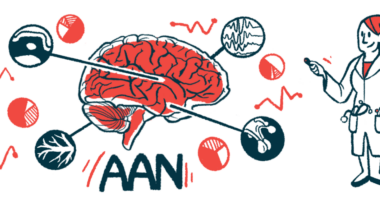Dravet caregivers have poor sleep, mental health, need support
Reduced sleep associated with more health conditions in patients

Most caregivers of people with Dravet syndrome report poor sleep quality, according to a study in Germany.
Reduced sleep quality was linked to higher levels of anxiety, depression, and burden, and more health conditions in patients, including moderate sleep disturbances.
The impact on sleep for caregivers was substantial even compared with caregivers of people with other rare diseases, the researchers said.
“Our findings support the notion that DS is a multifactorial disease presenting not only with [hard to treat] epilepsy but also with numerous symptoms and comorbidities [additional health conditions] that affect caregivers and the family environment,” the researchers wrote. “Sleep quality should receive more attention in daily treatment, as the sleep quality among caregivers of patients with DS [Dravet syndrome] appears to be deeply affected.”
The study, “Sleep quality, anxiety, symptoms of depression, and caregiver burden among those caring for patients with Dravet syndrome: a prospective multicenter study in Germany,” was published in the Orphanet Journal of Rare Diseases.
Caring for someone with a chronic disease can have a substantial impact. In recent years, scientists have begun studying the challenges faced by Dravet caregivers in the hope that better support strategies will be developed.
Research has shown that caring for a person with Dravet is associated with significant emotional, social, and financial burdens that affect caregivers’ quality of life.
“Although caregivers have reported sleep disturbances as critical factors impacting the quality of life of patients with DS who experience frequent seizure-related and nonseizure-related-awakenings, no comparable studies have examined the impacts of sleep disturbances on the quality of life of caregivers,” wrote researchers in Germany who surveyed Dravet caregivers to evaluate their sleep issues.
The survey, combining a questionnaire and a four-week diary to validate the retrospective data, was completed by up to 108 caregivers, most (92.6%) being the patient’s mother.
Most patients (71.3%) lived in a two-parent household. Most fathers were employed (85.2%), compared with less than half (46.3%) of mothers, most of whom (70.4%) reported a change in their work situation to accommodate their child, compared with 5.6% of fathers.
Poor sleep quality among Dravet caregivers
While patients were receiving a mean of three anti-seizure medications, they had about eight seizure days a month on average. Seizures occurring at night, which can disrupt sleep, were reported for most (71.4%).
Most patients (75.9%) had devices to monitor them during sleep, 33% slept in the same room as a caregiver, and 16.7% were supported by pediatric intensive care services.
Dravet patients were also affected by a range of other conditions, or comorbidities. The most common were motor coordination (85.2%), attention-deficit symptoms (80.6%), and behavioral problems (77.8%), which were reported by caregivers to have moderate to severe impact. More than half were reported to have sleep disorders (59.3%).
Caregivers also completed the Pittsburgh Sleep Quality Index (PSQI), a well-established measure of sleep quality. Participants also completed the Hospital Anxiety and Depression Scale, which measures anxiety and depression, as well as the Burden Scale for Family Caregivers (BSFC), which assesses caregiver burden and stress.
More than three-quarters (76.9%) had a score of 6 or higher on the PSQI, indicating abnormal sleep quality. Nearly a third (30.6%) had a PSQI score of 11 or higher, reflecting a severe sleep disorder.
“The proportion of poor sleepers in our cohort (76.9%) was double the proportion among the general German population,” the researchers wrote, adding that compared with prior studies of “caregivers of physically disabled children and of children with epilepsy, in general, the proportion of poor sleepers was larger among caregivers of patients with DS.”
“Our findings indicate that sleep quality is highly affected among caregivers of patients with DS,” the researchers wrote.
More than half the caregivers had higher than normal anxiety (61.8%) and/or depression (50.9%) — twice as high relative to the German population. Caregiver burden was generally moderate, with more than half having BSFC scores in the mild range.
Caregivers’ poorer quality sleep was significantly associated with more anxiety and depression, and a higher caregiver burden, statistical analyses showed. A higher number of patient comorbidities and at least moderate sleep disturbances were significantly linked to poorer caregiver sleep.
“Our study confirmed that sleep disturbances among patients with DS were an important risk factor for sleep deprivation and poor sleep quality among caregivers,” the researchers wrote.
Caregivers who slept in the same bedroom as the patient reported significantly worse scores related to anxiety and depression.
The findings underscore a need for better sleep-related support for Dravet caregivers, the researchers said.
“We recommend implementing a therapeutic approach for patients with DS that goes beyond seizures and includes caregivers, focusing on sleep quality and the impacts of sleep quality on caregivers’ mental health,” they said.








